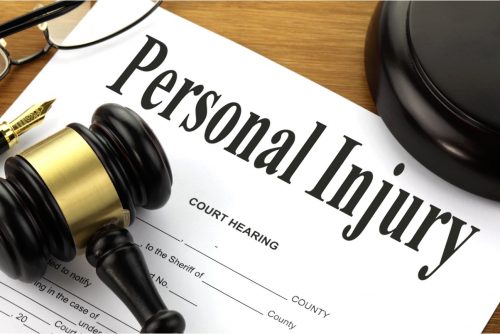
Being hurt, even fairly minor injuries can cause major disruption to your life and overall well being. Personal injury laws exist to help individuals make a claim against the costs and disruption caused by an injury when that injury was caused by another person’s carelessness, negligence, or recklessness.
Personal injury cases aren’t criminal cases in California. Rather, personal injury laws offer a way for victims to press civil liability to recover financial, physical, and emotional losses.
While a personal injury case can’t help you heal faster or reverse the damage, effectively pressing a personal injury case can help you get the resources you need for medical costs, and might also cover lost income and designate monetary compensation for pain and suffering.
What Falls Under Personal Injury Law in California?
One of the most important things you need to understand about personal injury law is what types of situations qualify for personal injury claims. There are a lot of circumstances that could warrant a personal injury case, and it’s most likely that many people don’t get adequate compensation because they do not realize that they have a good case.
Common Personal Injury Claims
- Auto Accidents
- Bike Accidents
- Dog bite cases
- Medical Malpractice (may also fall under other legal categories, depending on the case). Medical malpractice suits also have strict reporting criteria. If you think you might have been a victim of medical malpractice, you should speak to an attorney as soon as possible.
- Manufacturing defects that resulted in injury to the user
- Negligence directly leading to injury
- Slip and Fall accidents (in public and nonpublic spaces)
- Construction accidents
These types of cases aren’t cut and dry. While you may have a situation that looks like a personal injury case, there could be mitigating circumstances that change the situation.
Understanding Negligence
California uses a pure comparative system of negligence. That’s because there are different levels of fault in different personal injury cases. In some cases the defendant might be deemed 100% responsible for the injury.
However if multiple parties were negligent, liability is spread out between them according to how responsible each person was for the injury.
The person who is injured in a personal injury case can also be considered partially liable if they didn’t listen to warnings or posted signage or disregarded obvious indicators of danger.
The Statute of Limitations
California has a 2-year statute of limitations for the majority of personal injury cases. Some, like medical malpractice claims, have much shorter time periods, and you’ll need to move faster in those cases.
Additionally, if the defendant is a government entity, under California state law you just have six months to file an injury claim and might need to follow additional procedures to press your case.
California also protects you if you don’t immediately realize that you’re hurt. If you discover an injury later on, and that delay makes it difficult to file your injury claim within the statute of limitations, you might qualify for an extended statute of limitations. In that situation, you have up to 1 year after finding the injury to file your claim.
Personal injury claims can be extremely stressful and overwhelming, especially when the law is unclear or the legal issues are complex. Therefore, if you have been hurt in an accident and want to file a claim, you should strongly consider working with a personal injury attorney in San Francisco before going ahead with your case.
A skilled personal injury attorney will already be familiar with the law and various legal problems that arise in such cases. Your attorney will also be able to predict the likelihood of your case succeeding as well as the kinds of damages you might potentially acquire if you prevail.
Interesting Related Article: “6 Tips to Follow in a Personal Injury Claim Case“

